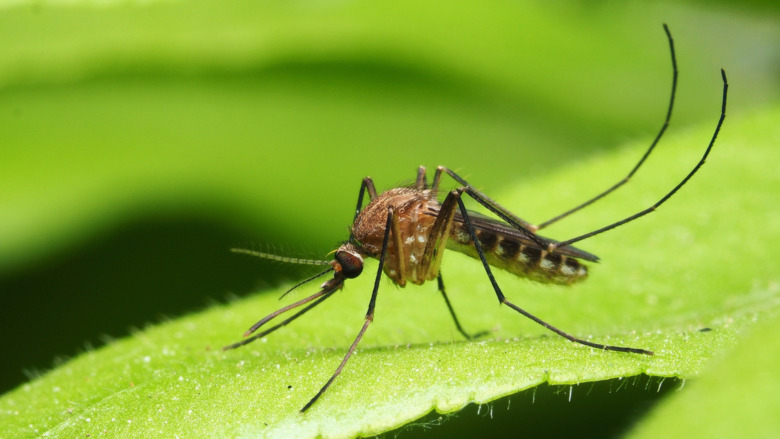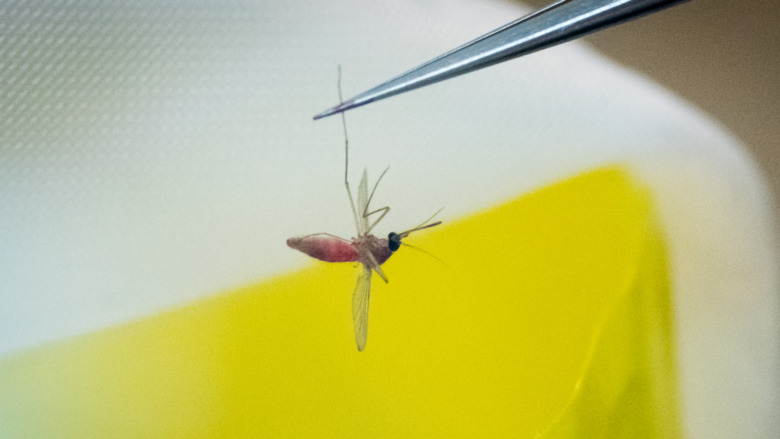The Surprising Reason Mosquitos Are Being Genetically Altered
So everybody loves mosquitos, right? Those cute, cuddly, swarming, biting, itchy insects that we'd all just love to slather on our bare, unclothed skin as soon as we eradicate our stockpile of bug repellant. Did that sentence make your skin crawl? Now add to the mix: the biotech industry, genetic engineering, sterility tests, population suppression, and lots of other terms that might conjure imagery of a sci-fi horror nightmare.
So then, you might understand why some folks in the Florida Keys are freaking out about the idea of having a cloud of 144,000 genetically engineered mosquitos deliberately released into their environment over the next 12 weeks — at least without further information. But London-based Oxitec, the biotech company planning to do this, has human survival in mind. As the Oxitec website says, they're trying to eradicate Aedes aegypti, a particularly nasty species of mosquito that comprises a mere 4% of the mosquito population in Florida, but is responsible for almost all of some of mosquito kind's worst transmittable diseases: Zika, dengue, chikungunya, yellow fever, and more. In fact, this kind of mosquito is so dangerous that the CDC's (Centers for Disease Control and Prevention) website has reams of pages dedicated to educating the public about the mosquito and how to engage in disease prevention.
So how can releasing more mosquitos into the environment kill them? Oxitec's mosquitos are all male, firstly — only females bite — and, as Vice tells us, they've been modified to mate and kill the next generation of baby mosquitos.
Hurrah: now we can annihilate 95% of Zika-carrying mosquitos
So how will the next generation of baby mosquitos die off? Oxitec's male mosquitos, dubbed OX5034, as Vice tells us, carry a "self-limiting" gene that will cause their offspring to die before they mature into adulthood. Yes, it's basically genocide, a fact made far less horrific because, you know: mosquitoes. Most of humanity might be able to stow its ethical differences about this one.
Oxitec is working in tandem with the Florida Keys Mosquito Control District, whose $14 million annual budget isn't enough to keep up with the eradication of an ever-burgeoning mosquito population. And so, they reached out to Oxitec, who got approval from the EPA, Centers for Disease Control and Prevention, and the Florida Department of Agriculture and Consumer Services to procure a "two-year Experimental Use Permit" and conduct their assault on everyone's favorite bloodsucking critters. The same procedure killed 95% of the Aedes aegypti population in Indaiatuba, Brazil. This is good news, because as recently as 2016, a Zika outbreak caused Miami-Dade County to aerially spray a six-block, inhabited radius with pesticides.
Even though locals were keen on the idea in 2012, and despite all studies, approval, and tests, they're still saying things like, "I don't trust this company and I can't trust their technology," calling themselves "guinea pigs" and "laboratory rats," and opening anti-Oxitec Facebook pages.
It's ok, Floridians. We understand your concerns. The disease-ridden mosquitos and aerial pesticides are all yours. Also, Disney World.

